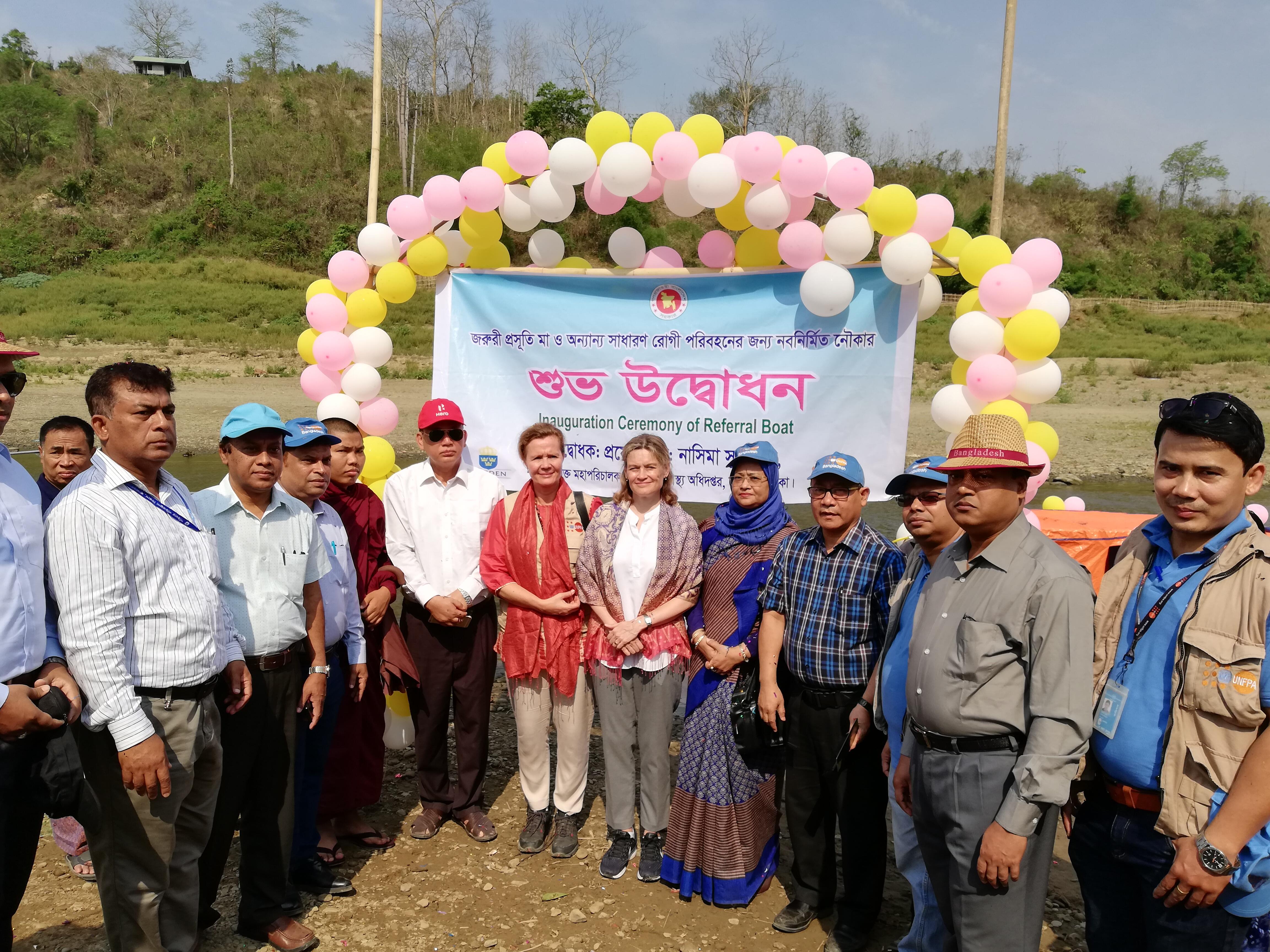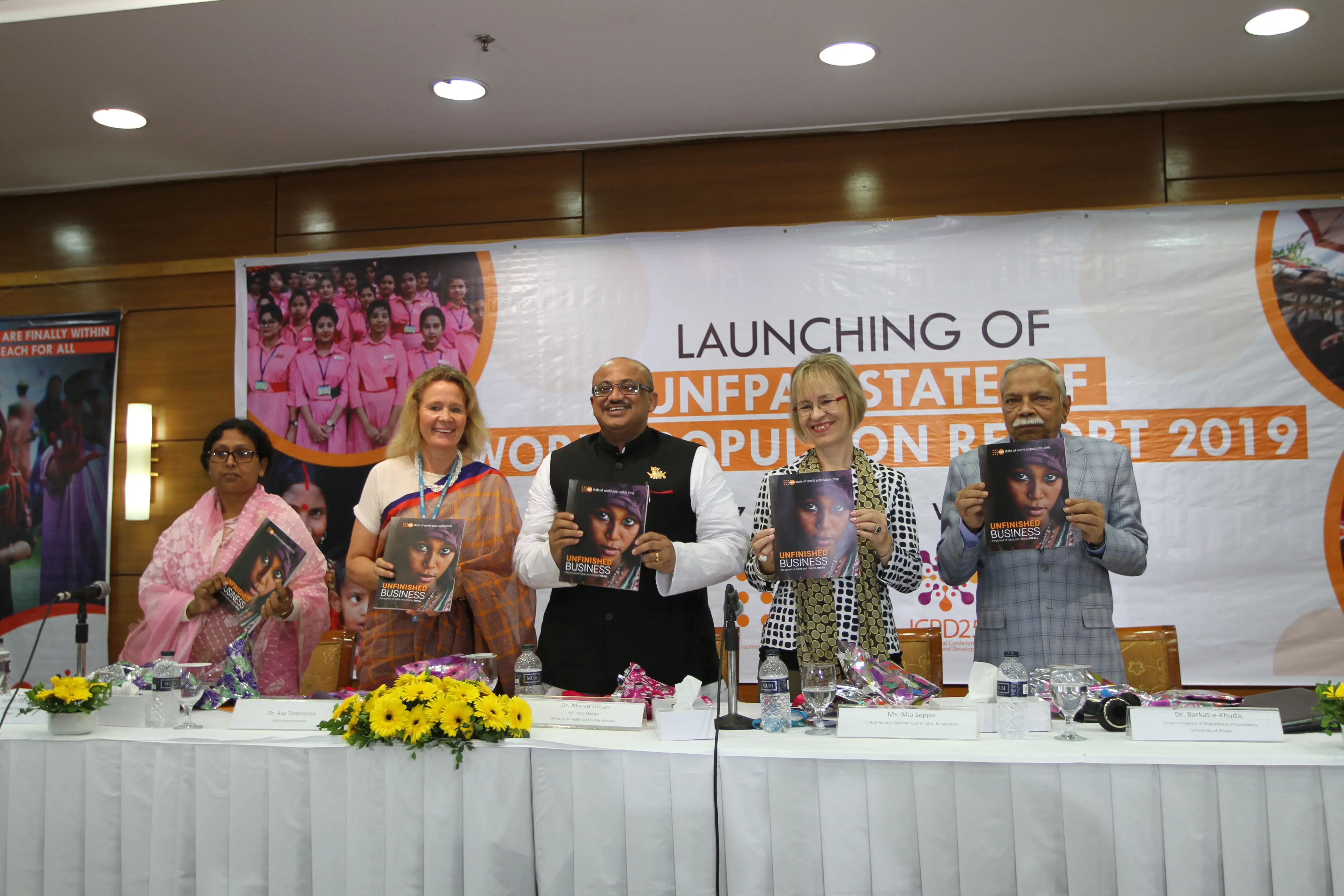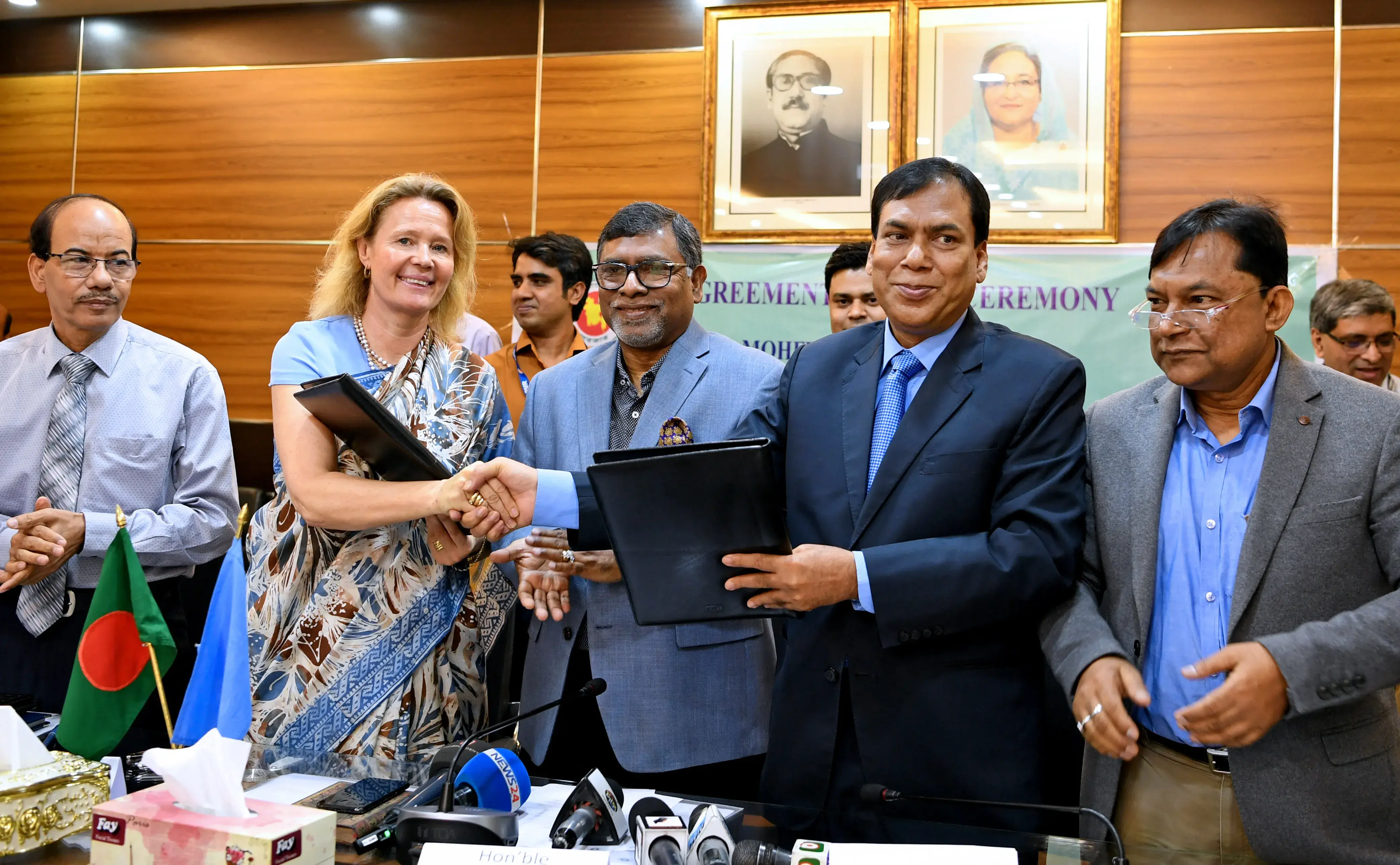Located in South- Eastern Bangladesh, thousands of wavy hills, greens rainforest, strong stream rivers, mountains make Bandarban one of the most beautiful and geographically distinctive regions in Bangladesh. The district is home to about 14 ethnic community groups, including Marma, Mro, Tripura, Chakma, Khyang, Tonchonga, Pangku, Bum, Khume, Lushei and Chak.
As captivating the hilly terrain of Bandarban appears to the eyes of visitors, rough lands and remoteness of villages coupled with an inadequate transport infrastructure make life in the terrain as hard for the people living in the region, particularly in availing essential sexual and reproductive health (SRH) services.
Due to the remoteness and hard to reach areas where these people are located, it can take more than one day for them to reach health facilities. Thus, the geographical barrier together with the long history of using traditional skilled or unskilled birth attendants, makes institutional deliveries especially in the Bandarban district is very low. According to the Ministry of Health and Family Welfare, maternal, newborn and neonatal health are among the most urgent SRH challenges for the people living in the region.
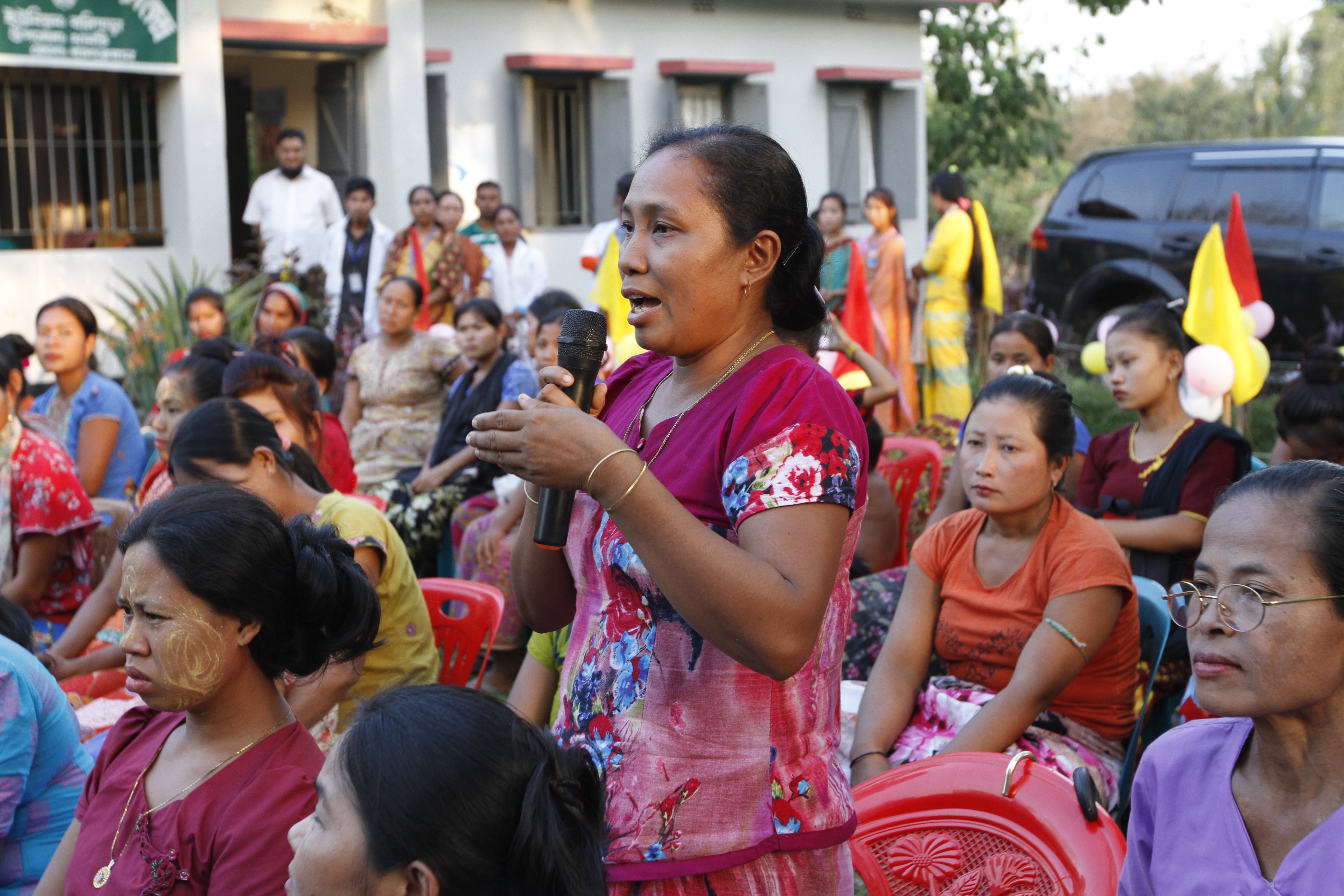
On that account, Bandarban is among the 19 targeted districts covered by UNFPA Bangladesh 9th Country Programme Document. UNFPA work to support 24/7 services at health facilities, provide training on PPH, eclampsia and use of partograph for nurses and midwives, support renovation of district hospital labour rooms with refrigerators to preserve life saving drugs, among other things in these health facilities. However, alongside all the drawbacks in availing SRH services, transportation is a recurring issue, especially for pregnant mothers in the area.
UNFPA and the Embassy of Sweden in Bangladesh stepped in to address the gap and provided the communities living around Thanchi with 3 referral boats in order to improve their access to SRHR services in collaboration with Directorate General of Health Services (DGHS). The boats were handed over to the community through a launching ceremony, which was attended by the Swedish Ambassador, Charlotta Schlyter, Additional Director General of DGHS Prof. Dr. Nasima Sultana and UNFPA Bangladesh Representative Dr. Asa Torkelsson.
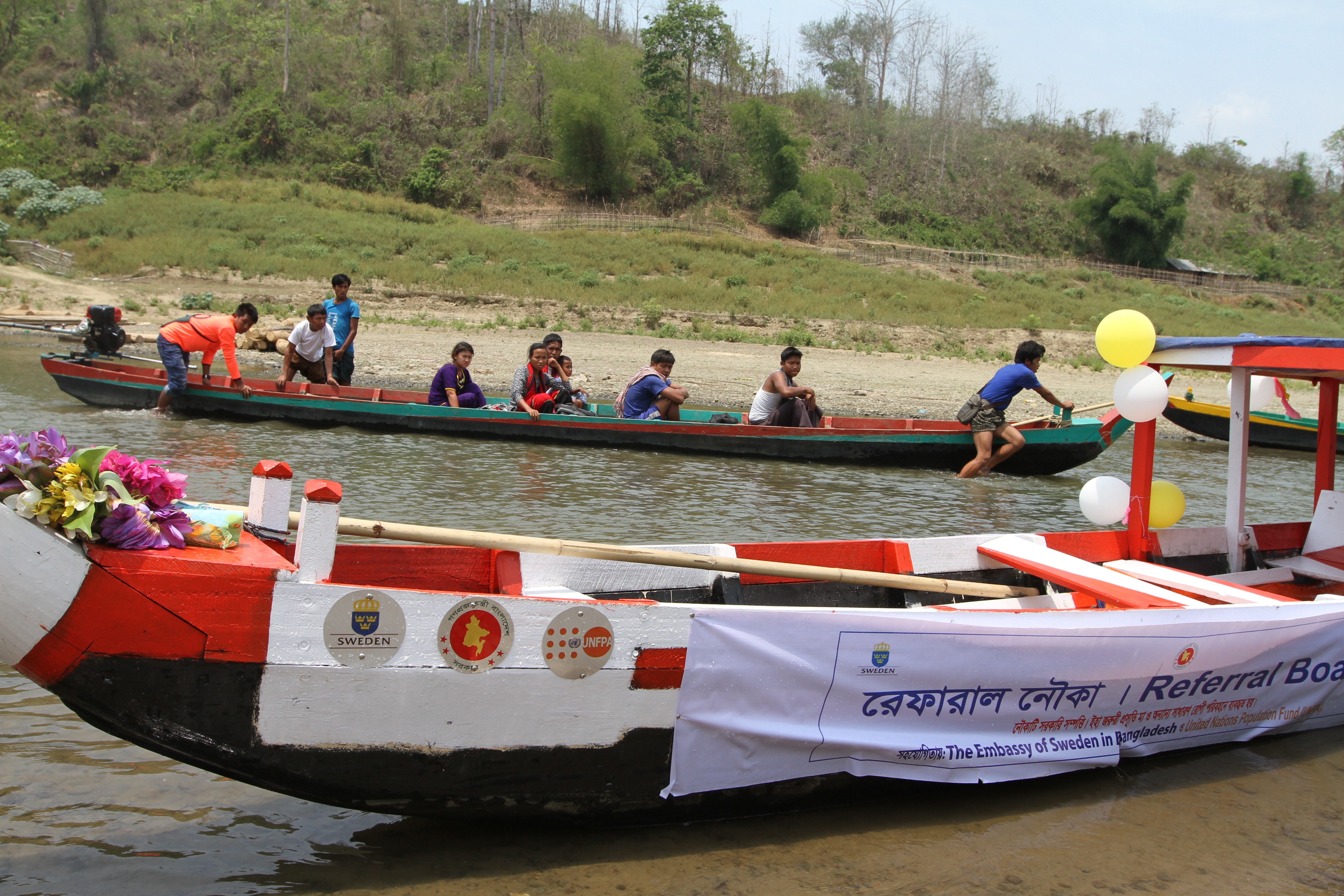
Speaking briefly of the daily hardships faced by pregnant mothers in commuting at the launching ceremony, Dr. Asa Torkelsson said that these referral boats symbolize UNFPA’s ambition of serving the last mile.
“We had inaugurated UNFPA’s District Field Office in Bandarban in October 2018, and had conversations with several government officials during that time and also students of Bandarban. The students of Bandarban were actually invited to draw the future they want. Their visions include having the ability to provide high quality health care especially for the women around them. This is why it was so nice these students’ drawings. Through those conversations we came to know that some Unions in Ruma, Thanchi to Alikadom Upazila were very remote and residents of those unions face tremendous difficulty in accessing health and family planning services,” Dr. Torkelsson said referring to her mission to the district earlier in 2018.
She added, “Accessing health care is especially difficult for pregnant mothers and this time around we also came to know that many pregnant mothers are aware or are even reluctant to use the existing services. Now this will be another of those challenges to eradicate. Community based service providers also face limitations in visiting communities and providing care due to lack of proper transportation. As a solution, we have organized to provide three boats to help the local community, and especially pregnant mothers, to access health care in a timely fashion. This intervention will help us in our efforts to ensure that no one in Bangladesh is left behind."

“The referral boats, provided by UNFPA and supported by the Swedish Embassy, will aid mothers to access proper SRHR services. UNFPA strives to realize the unfinished agenda of ICPD - to advance the rights and choices for women and girls and to see a world where no one is left behind. Seeing the smiling faces of women in Bandarban makes us even more determined to do so,” Dr. Torkelsson concluded.
Stating their commitment to ensuring the wellbeing of women and girls, Ms. Charlotta Schlyter, the Swedish Ambassador to Bangladesh, said, “I believe the boats will be helpful in places with stress and transportation problems. It’s vital that the people of Bandarban already know how they can access the health facilities already available here.”
“The reason we supported this endeavour is because the empowerment of women is key to achieving the SDGs and Sexual and Reproductive Health and Rights, one of the main highlights of UNFPA’s mandate, is something everyone should obtain. Hopefully these services will help us get closer to achieving the SDGs and making sure that no one is left behind,” she added.
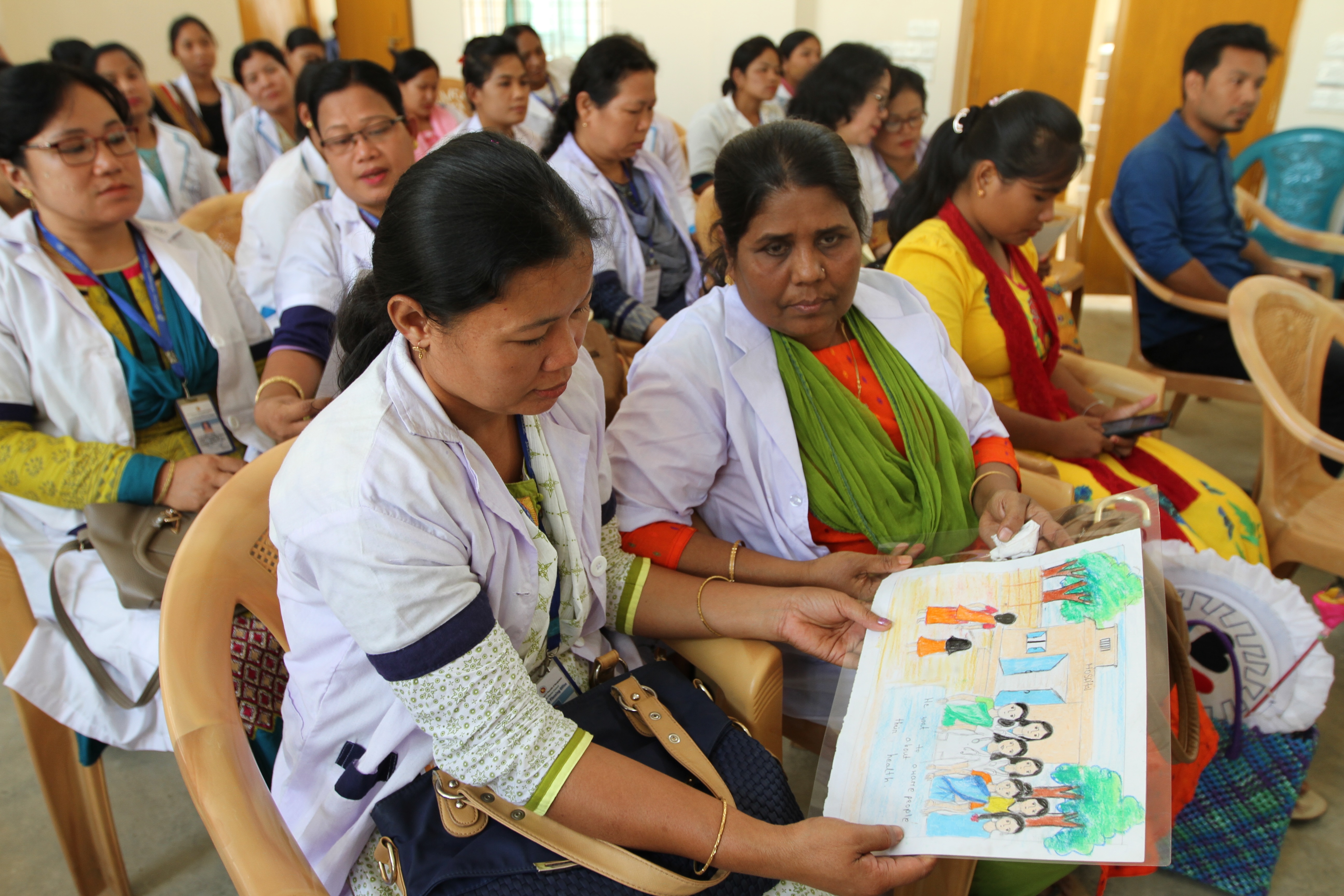
On a similar note, Additional Director General of DGHS Prof. Dr. Nasima Sultana said, “If you think that our country has achieved enough, please know that we still have a long way to go, at least in the health sector. We have been successful in eradicating polio, finire even some bits of malaria. Now we are aiming for zero malaria especially in endemic areas like Chittagong. Hopefully, we will be able to achieve our SDG targets and make sure no one is left behind.”
The delegation also spent time with pregnant mothers, women and girls, and service providers at the Bolipara Union Health & Family Welfare Center (UHFWC) 24/7 Emergency Obstetric and Neonatal Care (EmONC) and travelled to Narikal Para satellite clinic to observe the SRHR services provided in the facility firsthand and attended a training session on “Life-Saving Skills in Pregnancy and Childbirth (LSPC)” in Bandarban.
UNFPA Bangladesh thanks the Swedish Embassy in Bangladesh for its ongoing support to UNFPA and our aspiration of leaving no one behind from accessing Comprehensive Sexual Reproductive Health services.

